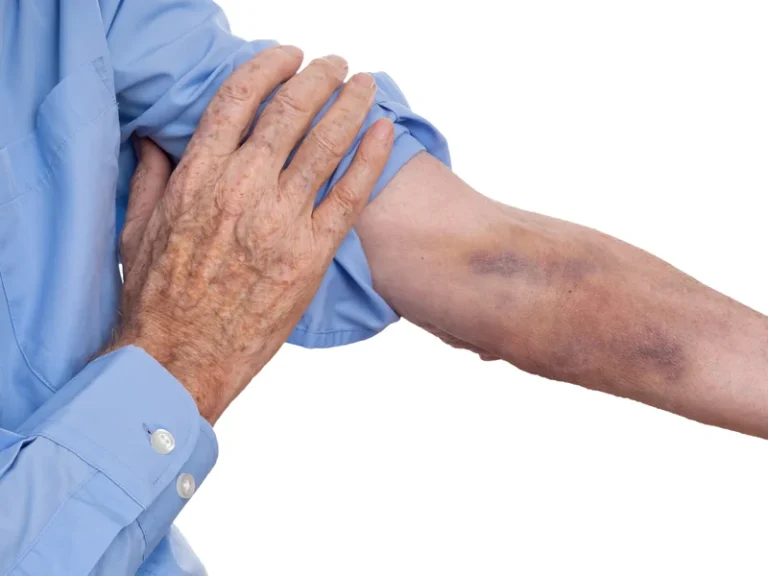
“With regard to cancer risk, any drinking at all was detrimental,” she warns. Dr. Hartz and team’s research, however, reveals that the health hazards that even people who drink lightly face outweigh any potential benefits. Treatment for AUD often revolves around a plan that includes rehabilitation, care from addiction https://ecosoberhouse.com/ specialists and self-help programs such as Alcoholics Anonymous (AA). However, certain food groups also have benefits when it comes to helping with the discomfort of withdrawal symptoms and detoxification. Visit the following websites to learn about The Recovery Village’s network of rehabilitation facilities.
- They may only feel well when they maintain a consistent level of alcohol in their bloodstream.
- In June, the World Health Organization said that no level of alcohol consumption is safe for our health.
- Understanding what the stages of alcohol addiction look like can help you or a loved one decide whether rehab treatment is necessary.
- When it comes to alcohol, if you don’t drink, don’t start for health reasons.
- Alcohol use disorder, often called alcoholism, is a medical condition in which the individual indulges in heavy alcohol use frequently.
Impact on your safety
Depending on how often you drink and how much, you may need support from a healthcare professional if you want to stop drinking. Chronic drinking can affect your heart and lungs, raising your risk of developing heart-related health issues. Many people assume the occasional beer or glass of wine at mealtimes or special occasions doesn’t pose much cause for concern.
What is considered 1 drink?
Along with regaining control of your life, there are financial benefits to abstinence that can help you save more money daily, weekly, monthly or yearly. Over the years, the rates of alcohol abuse and alcoholism in the US have shown significant changes. The economic burden of alcohol abuse and alcoholism in the United States is staggering, particularly lost productivity. The graph below shows the economic costs of alcohol abuse and alcoholism. This article will explore the prevalence, economic costs, and trends of alcohol abuse and alcoholism in the United States. At this point, you may have alcohol cravings or drink to avoid the low feelings withdrawal causes rather than for the pleasurable feelings alcohol consumption may offer.
Cancer risk
It also makes someone more likely to die in a car wreck or from murder or suicide. And any alcohol abuse raises the odds of domestic violence, child abuse and neglect, and fetal alcohol syndrome. Heavy drinking is considered 5 or more episodes of binge drinking in a given month. Once you engage in moderate Do Alcoholics Drink Every Day to heavy drinking regularly, you’re at risk for alcohol dependence. This level of treatment often provides the same types of programming as inpatient facilities but is relatively less time intensive. Individuals in recovery are able to return home or to other living situations outside of treatment hours.
Heavy Alcohol Use:
Some people seem to be just fine even though they misuse alcohol. You may hear them called “functional” or “high-functioning” alcoholics. But those aren’t official medical terms. Because denial is common, you may feel like you don’t have a problem with drinking. You might not recognize how much you drink or how many problems in your life are related to alcohol use. Listen to relatives, friends or co-workers when they ask you to examine your drinking habits or to seek help.
Heart Health
However, heavy and binge drinking can increase a person’s risk of developing this condition. Experts define levels of alcohol use by the number of drinks a person consumes per day and week. These levels include moderate drinking, binge drinking, and heavy drinking. The liver metabolizes most of the alcohol you consume, breaking it down into acetaldehyde.
- Recent research has shown that any alcohol consumption can negatively affect a person’s health.
- Despite the repercussions, we decide it’s worth the excitement to try again.
- However, experts encourage people who choose to drink alcohol to do so in moderation.
- The graph below shows the economic costs of alcohol abuse and alcoholism.
- However, keeping track of alcohol intake can help a person reduce their risk of alcohol-related health conditions or injury.
- Heavy drinking also may result in alcohol withdrawal symptoms.
- Binge drinking and regular long-term excessive drinking can hurt your health.
What Are the Long-Term Effects of Alcohol on the Body?

Depending on the severity of their alcohol use, a person may experience withdrawal symptoms that begin within 6 hours after they stop drinking. Symptoms can be mild, such as headaches and palpitations, or severe, such as delirium tremens. The main problem with heavy drinking is binge drinking since 90% of heavy drinkers binge drink. Nearly one in every six alcohol drinkers in the U.S. binge drink. To make matters worse, they do it an average of four times per month and drink up to eight drinks on one occasion. Current guidelines encourage people not to drink any alcohol.

Acetaldehyde is a toxin that can damage the body’s organs and tissues before it is further broken down into acetate. New research suggests the risks of even moderate or light drinking may outweigh the benefits. In June, the World Health Organization said that no level of alcohol consumption is safe for our health.
Risks of heavy alcohol use

The rate of communication returns to its typical levels once alcohol leaves the body. If a person drinks frequently or more heavily, the nerve cells in the brain adapt by reducing the number of places they can receive these messages. When a person with alcoholism reaches end stage alcoholism, they have reached a point that is dramatically different from the initial stages. During the early stages of the disease, the person may drink heavily and may experience hangovers in between drinking episodes. However, during the end stage, the addiction has taken over, and the person may no longer be able to control their drinking impulses. Late-stage, or end-stage alcoholism, is a full-blown addiction to alcohol, often with damaging physical and mental health effects.

